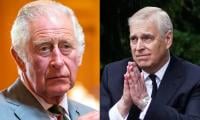ISLAMABAD: More than 700,000 voters will elect 24 candidates in general elections to the third Gilgit-Baltistan Legislative Assembly (GBLA) to be held on November 15.
The Pakistan Muslim League-Nawaz (PML-N) had swept the previous polls held five years ago when it was also in power at the federal level. How the party will perform in the forthcoming elections under very different circumstances will be a matter of great public interest.
Of the 24 directly contested seats, the PML-N had clinched 15 while its final tally had jumped to 21 seats with the addition of six indirectly elected special seats for women and technocrats/professionals in the previous elections.
The PPP had won two seats and the Pakistan Tehreek-e-Insaf (PTI) one. The Islami Tehreek Pakistan had won three seats and the Majlis Wahdat-e-Muslimeen had secured two seats. The Jamiat-e-Ulema-e- Islam-Fazl (JUI-F) and Balawaristan National Front had secured one seat each. An independent candidate had also been successful in the 2015 elections.
Virtually the same parties are taking part in the fresh elections next month. There are a total of 14 registered parties, according to the GB Election Commission.
The 33-member GBLA is a unicameral legislative body that was formed as part of the GB Empowerment and Self-Governance Order, 2009, which granted the region self-rule and an elected legislative assembly. The elections were earlier scheduled to be held on Aug 18 but were postponed due to the Covid-19 pandemic.
The 2009 reform package granted some legislative powers to the GBLA but most important subjects remain with the GB Council, which has been created on the pattern of the Azad Kashmir Council. The prime minister of Pakistan is its chairman.
In September 2009, the then president, Asif Ali Zardari, had signed the GB Empowerment and Self-governance Order, aimed at introducing far-reaching administrative, political, financial and judicial reforms in the erstwhile Northern Areas, which was renamed Gilgit-Baltistan. It is under this order that GB now has an elected assembly with its own chief minister. The governor, meanwhile, is appointed by the president of Pakistan on the advice of the prime minister. GB has its own public service commission, a chief election commissioner and an auditor-general. It has a Consolidated Fund and the annual budget is presented to the assembly and voted upon as per the practice in vogue in the other provinces of Pakistan.
The Order also contained judicial reforms. The chief judge of the Supreme Appellate Court is appointed by the chairman of the council on the advice of the governor. Other judges are selected by the chairman on the advice of the governor after seeking the views of the chief judge.
A proposal was recently discussed to grant the status of a province/federating unit of Pakistan to GB. Leaders of major political parties recently held a meeting with Chief of Army Staff General Qamar Javed Bajwa on the issue. The new GBLA is likely to pass a resolution to make GB a province.
Political parties differ over the issue of according the status of a province to GB. Both the PML-N and PPP have reservations on the proposal. They have also voiced their views on the security arrangements for the November elections.
Norwegian PM says he found it “worrying” that someone with so much wealth was getting involved in politics
One more suspected terrorist was apprehended in connection with attack, bringing total number of arrests to three out...
Dhaka and New Delhi have bilateral extradition treaty which would permit her to return to Bangladesh to face criminal...
Tanveer highlights that 1,675 acres was allotted to PSML in 1974-75 for Steel Project
Under deal, US government will shoulder cost of Afghans’ stays in Manila
At least 241 women were executed from 2010 to 2024, mostly on drug and murder convictions







